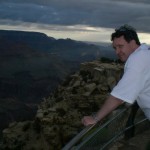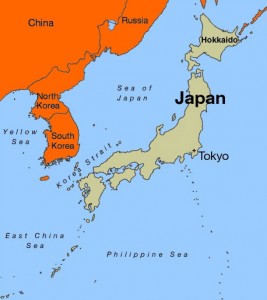“O Lord, make me poor in spirit.” That’s not a prayer I have heard uttered in a long, long time. That is a sad fact. What is even more sad and to my shame is the fact that it is not a prayer I have heard myself pray in quite some time. That’s because poverty of spirit is quite possibly the underlying root cause difference between the Christian whose life is marked by seeking God and the prayerless saint. To be poor in spirit is to recognize utter and complete dependance upon the Lord. It is to say “Lord, I am nothing without You and I need You desperately.”
In our culture, to be independent is a virtue. Yet in the kingdom of God, the more we are aware of our need of God, the more our spiritual life can grow.
I believe poverty of spirit has two major components to it. First of all there is a recognition of the seriousness and vile nature of sin. John Wesley described it in the following way, “He has a deep sense of the loathsome leprosy of sin which he brought with him from his mother’s womb, which overspreads his whole soul, and totally corrupts every power and faculty thereof.”
The second component is this attribute of dependence upon God. Kent Hughes writes, “Just as no one can come to Christ without poverty of spirit, no one can continue to grow apart from an ongoing poverty of spirit. Poverty of spirit is foundational because a continual sense of spiritual need is the basis for ongoing spiritual blessing. A perpetual awareness of our spiritual insufficiency opens us to continually receiving spiritual riches. Poverty of spirit is something we never outgrow. In fact, the more spiritually mature we become, the more profound will be our sense of poverty.” (The Sermon on the Mount [Crossway, 2001], 22)
As you read these words today, join me in asking God for this poverty of spirit, to rid the heart of human pride and to realize the depth of our need of Him. There is no merit in praying such a prayer for this is merely a recognition of reality. We need Him more than we realise. Understanding this is foundational for life in the kingdom of God. Indeed, it is the first of the Beattitudes, for Jesus “opened his mouth and taught them, saying: “Blessed are the poor in spirit, for theirs is the kingdom of heaven…” (Matt 5:3)
This poverty of spirit is illustrated in this testimony here: From a 2008 interview with Bob Kauflin, published in The Power of Words and the Wonder of God (pp. 149-151). Hopefully, most of us will not have to go to such low depths to discover just how much we need Him:
I helped plant a church in Charlotte, North Carolina, in 1991. I began to feel increasing anxiety at different times when we first planted the church. Then in January of 1994 my wife and I were at a couple’s house for dinner, and I cracked. My life fell apart. Mentally I had no connection with what I was doing, no connection with the past, no connection with the future. I didn’t know why I existed. These were the thoughts that went through my brain. That began a period of maybe three years where I battled constant hopelessness. I would wake up each morning with this thought: “Your life is completely hopeless,” and then I would go from there. It was a struggle just to make it through to each step of the day. The way I made it through was just to think, What am I going to do next? What will I do? I can make it to there.
It was characterized by panic attacks. For the first six months I battled thoughts of death. I’d think about an event that was three months away: Why am I thinking about that? I’m going to be dead by then. I had feelings of tightness in my chest, buzzing and itching on my arms, buzzing on my face. It was a horrible time. And in the midst of that I cried out to God, and I certainly talked to the pastor that I served with and other pastors that I knew—good friends—trying to figure out what in the world was going on with my life.
Five or six children at that time, a fruitful life, a fruitful ministry. And this is what I discovered: although I’d been a Christian for twenty-two years (since 1972) I was driven by a desire to be praised by men. And I wasn’t succeeding. When you plant a church, you find out that there are a lot of people who don’t agree with you. People who came to plant the church left. All of that assaulted my craving to be admired and praised and loved and worshiped and adored and applauded. God, I believe, just took his hand from me and said, “Okay, you handle this your way.” I knew the gospel, but what I didn’t know was how great a sinner I was. I thought the gospel I needed was for pretty good people, and that wasn’t sufficient to spare me from the utter hopelessness I felt during that time.
I would read Scripture. It didn’t make sense to me. It didn’t affect me. I remember lying at bed at times just reciting the Lord’s Prayer to myself over and over and over, hoping that would help. I couldn’t sleep; then at times all I wanted to do was sleep. I remember saying this early on: “God, if you keep me like this for the rest of my life but it means that I will know you better, then keep me like this.” That was the hardest prayer I’ve ever prayed.
During that time I read an abridged version of John Owen’s Sin and Temptation and Jerry Bridges’s The Discipline of Grace.
About a year into the process I talked to a good friend, Gary Ricucci, whom I am now in a small group with at Covenant Life Church. I said, “Gary, I feel hopeless all the time.”
He said, “You know, Bob? I think your problem is that you don’t feel hopeless enough.”
I don’t know what I looked like on the outside, but on the inside I was saying, “You are crazy. You are crazy. I feel hopeless.”
He said, “No, if you were hopeless, you would stop trusting in yourself and rely completely on what Jesus Christ accomplished for you.”
That was the beginning of the way out. And I remember saying to myself literally hundreds of times—every time these feelings of hopelessness and panic and a desire to ball up in a fetal position would come on me—“I feel completely hopeless because I am hopeless, but Jesus Christ died for hopeless people, and I’m one of them.”
Over time I began to believe that. And today when I tell people that Jesus is a great Savior, I believe it, because I know that he saved me. That’s where my joy comes from. My joy comes from knowing that at the very bottom, at the very pit of who I am, it is blackness and sin, but the love and grace of Jesus goes deeper.
 Do miracles happen today? If we believe in a God who still answers prayer, I am sure we as Bible believing Christians would say “yes.”
Do miracles happen today? If we believe in a God who still answers prayer, I am sure we as Bible believing Christians would say “yes.”
 You have rejected us, O God, broken our defences and burst upon us. You have been angry with us; now restore us to Your favour. You have shaken our land and split it open. Now mend its fractures and seal the cracks, for the land is quaking. You have been very hard on us and shown Your people desperate times. – Psalm 62:1-3 combined NIV NLT translation
You have rejected us, O God, broken our defences and burst upon us. You have been angry with us; now restore us to Your favour. You have shaken our land and split it open. Now mend its fractures and seal the cracks, for the land is quaking. You have been very hard on us and shown Your people desperate times. – Psalm 62:1-3 combined NIV NLT translation